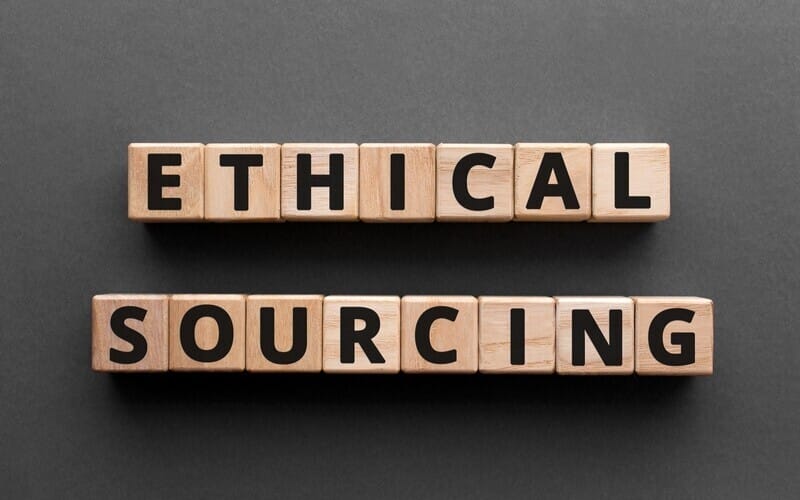What does it mean to be a truly sustainable business in 2026 and beyond? It’s no longer enough to simply offer eco-friendly products. Consumers are looking for companies that are committed to ethical practices, social justice, and environmental stewardship. Let’s explore 7 inspiring examples of emerging businesses that are raising the bar for CSR, and proving that profit and purpose can go hand-in-hand.
Table of Contents
The Evolution of Corporate Social Responsibility (CSR)
Corporate Social Responsibility, or CSR, isn’t just a buzzword thrown around in business circles. It’s a vital part of how companies operate sustainably and ethically. For many emerging businesses today, CSR represents a commitment to not just the bottom line but also to the communities and ecosystems they impact.
Understanding CSR starts with recognizing its role in building trust with stakeholders, including customers, employees, and investors. When businesses adopt responsible practices, they not only improve their reputation but also mitigate risks associated with environmental and social challenges.
Incorporating CSR in business strategies can be a game-changer. It means looking beyond immediate financial gains and considering the long-term effects of business decisions. This mindset can lead to innovative approaches that address essential social and environmental issues, fostering growth that’s both sustainable and equitable.
Why focus on CSR now, you might ask? The reason’s twofold. First, there’s growing consumer awareness about global issues such as climate change and social inequality. People want to support companies that contribute positively to society. Second, regulatory environments are becoming stricter, pushing businesses to adhere to higher standards of responsibility and transparency.
This article explores seven remarkable examples of how emerging businesses have embraced CSR. These examples illustrate the diversity of strategies used by companies to integrate responsibility into their operations, from renewable energy initiatives to ethical finance practices.
The journey of CSR is as much about innovation as it is about ethics. Emerging businesses have unique opportunities to set new standards and inspire change. They’re not just shaping their brand’s future but also contributing to a sustainable world economy.
So, buckle up as we explore these inspiring examples. Each story is a testament to the power of responsible business and a guide for those looking to navigate the CSR landscape.
Example 1: Eco Innovators in Renewable Energy Ventures
In the world of renewable energy, innovation is more than just creating eco-friendly power sources. It’s about transforming how societies generate and consume energy sustainably. Emerging businesses in this sector are leading the charge, blending technology, community engagement, and environmental stewardship.
Take, for instance, a fresh startup harnessing the power of wind and solar in ingenious ways. By integrating cutting-edge technology and tapping into renewable resources, they’re reshaping the traditional energy landscape. These companies not only reduce carbon footprints but also provide communities with cleaner, more affordable energy options.
CSR initiatives in renewable energy often focus on community impact. Many companies engage directly with local communities, offering education and job opportunities while respecting indigenous lands and resources. This proactive strategy not only builds goodwill but also lays a strong foundation for long-term partnerships.
Sustainability in these ventures goes beyond energy production. It involves crafting business models that are resilient and scalable, addressing both environmental and socioeconomic challenges. This holistic approach ensures that the benefits of renewable energy reach wider audiences, amplifying the positive impact.
For businesses venturing into renewable energy, the key is to remain committed to ethical practices. It’s about balancing innovation with responsibility, ensuring that their growth objectives don’t compromise environmental integrity. Stakeholders are more likely to support and invest in companies that demonstrate a clear, sustainable vision.
Aspiring energy entrepreneurs can look to these pioneers for inspiration. Their journeys offer valuable lessons in the importance of aligning business operations with sustainability goals, maintaining transparency, and fostering trust with local communities. It’s this dedication that fuels their progress, creating a ripple effect of positive change.
Example 2: Fashion’s Green Pioneers: Ethical Apparel Brands
In the realm of fashion, a movement is stirring that prioritizes ethics and sustainability over fast production and disposability. Emerging ethical apparel brands are at the forefront of this shift, embracing Corporate Social Responsibility (CSR) by reinventing how clothes are produced and consumed.
These fashion pioneers focus on transparency throughout their supply chain, ensuring fair wages and safe working conditions for textile workers. By choosing sustainable materials like organic cotton or recycled fibers, they’re reducing environmental impact and setting new industry standards.

The ripple effects of these practices aren’t limited to just environmental benefits. Ethical fashion brands also foster a sense of community and culture around conscious consumerism. They engage directly with customers through stories and initiatives that highlight the real cost of fashion — encouraging people to make informed purchasing decisions.
A key driver in the success of these ethical fashion brands is the rising demand for responsible products. Consumers today prioritize values like sustainability and humanity alongside style, urging more brands to align with these principles. This is prompting a broader industry rethink, pushing even established fashion houses to reconsider their production methods.
For emerging fashion entrepreneurs, ESG considerations can pave the way for innovative business models. This may include zero-waste production techniques or circular economy principles that extend the life cycle of garments. Such approaches not only differentiate brands but also appeal to a growing segment of eco-conscious shoppers.
The journey isn’t without challenges — balancing cost, scale, and sustainability requires strategic innovation. However, those that manage to resonate with authenticity and genuine commitment to CSR are often rewarded with loyal customers and a strong brand identity.
Inspiring as they are, ethical apparel brands serve as a guide to an industry in transition. They’re proving that fashion doesn’t have to compromise ethics for creativity or profit, showing that change is not only possible but also profitable.
Example 3: Agriculture’s Silent Revolutionaries: Organic Farming Enterprises
In the bustling world of agriculture, organic farming enterprises are quietly leading a revolution towards more sustainable and health-conscious practices. These innovative businesses are reshaping the food production landscape, proving that profitability and sustainability can go hand in hand.
Organic farms focus on naturally cultivating crops without synthetic fertilizers or pesticides. They prioritize biodiversity and soil health, aiming to create a self-sustaining ecosystem that reduces environmental impacts. This method not only yields healthier produce but also supports the planet’s long-term well-being.
The benefits extend beyond just healthier food. Organic farming contributes to rural development by creating jobs and stabilizing local economies. These enterprises often partner with nearby communities, sharing knowledge and resources to promote sustainable agricultural practices. This symbiotic relationship enhances food security and empowers farmers through education and fair-trade initiatives.
Emerging organic farms are setting benchmarks in traceability and transparency. Many implement practices like farm-to-table partnerships and detailed labeling, giving consumers insight into the origins of their food. Such openness builds trust and encourages customer loyalty, providing a competitive edge in an increasingly health-conscious market.
Prospective organic entrepreneurs can draw inspiration from these pioneers. It’s about understanding consumer demand for transparency and quality while fostering innovation in farming practices. Exploring diverse crop varieties, engaging in community-supported agriculture, or adopting agroforestry can enhance both environmental and economic viability.
However, the path of organic farming isn’t without hurdles. Overcoming challenges related to certification, market access, and scale require thoughtful strategies and a clear vision. Yet, those who navigate these complexities with resilience often find their efforts rewarded with market growth and positive social impact.
Organic farming enterprises act as catalysts for change in a conventional industry. They’re redefining the way we think about agriculture and food production, proving that nurturing the earth can be both an ethical practice and a successful business model.
Example 4: Technology’s Carbon Footprint Reducers: Green Tech Innovators
In the arena of technology, some businesses are stepping up with significant innovations aimed at reducing environmental impacts. These green tech innovators are leveraging their prowess in technology to create solutions that address some of the most pressing ecological challenges today. These companies often start by focusing on energy efficiency. Whether it’s developing software to manage power usage in data centers or inventing hardware that consumes less energy, their tech-driven solutions contribute significantly to conserving resources. This not only curtails emissions but often translates into cost savings, offering a dual benefit for both the environment and their business operations.
Green tech isn’t just about energy; it’s about advancing sustainable practices across various layers of technology. From sustainable manufacturing processes using recycled materials to smart technologies that monitor and improve environmental conditions—these companies are at the forefront of eco-friendly innovation. Their work extends into sectors like transportation, with breakthroughs in electric vehicles, and smart energy grids that optimize power distribution.
For startups and businesses wading into the green tech space, the emphasis is often on collaboration and adaptation. Partnering with academic institutions, government bodies, and NGOs can accelerate research and development while also pooling resources to push boundaries.
The success stories in this field serve as a beacon for aspiring tech entrepreneurs. Navigating the regulatory landscape, accessing the necessary funding, and building the right partnerships are crucial steps that define the journey. Those who manage to align their technological innovations with sustainability goals not only enhance their competitive advantage but also make a meaningful impact on the global community.
Green tech innovators are transforming how we perceive technology’s role in society. By bridging the gap between technological advancement and environmental responsibility, they are crafting a future where technology and sustainability harmoniously coexist.
Example 5: Eco-Entrepreneurs in the Beverage Industry
In the beverage industry, some entrepreneurs are making a splash with their environmentally conscious practices. These companies are redefining the way drinks are produced, packaged, and consumed, prioritizing sustainability at every step. One significant area of focus is eco-friendly packaging. Businesses are opting for innovative solutions such as biodegradable bottles or cans made from recycled materials. This shift not only reduces waste but also caters to consumers growing appetite for sustainable products.
Commitments to fair trade and ethical sourcing are another hallmark of these forward-thinking beverage firms. By building direct relationships with growers and ensuring fair compensation, they support sustainable agricultural practices and contribute to community development. This approach enriches supply chain transparency and strengthens brand trust.

Eco-friendly beverage firms also engage deeply with consumers through educational initiatives. Many brands conduct awareness campaigns to highlight the environmental impact of their choices, encouraging customers to recycle and adopt a more sustainable lifestyle. This kind of engagement not only promotes the brand ethos but also fosters a sense of shared responsibility.
Aspiring beverage entrepreneurs exploring eco-friendly paths can draw on these examples for inspiration. Prioritizing sustainability isn’t just about selecting the right materials or practices; it’s about embedding these principles into the very core of the business model. Innovations in water usage reduction, energy-efficient production lines, and renewable energy adoption can further enhance sustainability efforts. While the journey involves navigating regulatory hurdles and managing potential costs, the impact on brand loyalty and market differentiation is undeniable. Consumers are increasingly choosing to support companies that actively contribute to environmental wellbeing, providing a unique proposition for ethical beverage brands.
Through their pioneering efforts, eco-entrepreneurs in the beverage sector are proving that responsible practices and business success aren’t mutually exclusive. They serve as valuable mentors for others in the industry, illustrating how creativity and commitment to CSR can lead to impactful change.
Example 6: Builders of Tomorrow: Sustainable Construction and Design Pioneers
In the world of construction and design, an exciting shift towards sustainability is underway. Innovators in this space are setting new standards by integrating eco-friendly materials and energy-efficient practices into their projects. Their efforts demonstrate how thoughtful construction can lead to lasting environmental benefits while meeting modern design needs. One approach these pioneers are taking is the use of renewable materials, such as bamboo or recycled steel, which significantly reduce the carbon footprint of their buildings. The choice of materials plays a crucial role in minimizing ecological impact, emphasizing durability and sustainability without compromising on aesthetics.
Energy efficiency is another cornerstone of their strategy. By harnessing technologies like solar panels, energy-efficient lighting, and advanced insulation systems, these businesses craft structures that conserve energy and lower utility costs. This not only contributes positively to the environment but also enhances the economic viability of their projects.
The sustainable design goes beyond materials and energy; it extends to site planning and community impact. By prioritizing local resources and respecting natural landscapes, these builders ensure that their projects are integrated into the community with minimal disruption. They focus on creating spaces that foster community well-being and encourage greener ways of living.
Aspiring architects and builders can learn from these sustainable leaders by embracing innovation and collaboration. Engaging with stakeholders early in the design process, leveraging technology for better efficiency, and being open to new, sustainable materials can lead to smarter, future-ready constructions.
Challenges such as budget constraints, sourcing sustainable materials, and aligning with existing municipal codes require strategic thinking and perseverance. However, the rewards of creating buildings that are both environmentally responsible and aesthetically pleasing make the journey worthwhile. Through their groundbreaking work, these construction innovators demonstrate that the future of building lies in harmonizing design elegance with sustainability. They offer a roadmap for the industry, illustrating how environmentally-conscious practices can lead to more resilient, adaptive, and valued spaces.
Example 7: Financial Icons Leading with Responsible Investment Practices
In the financial industry, a shift towards responsible investment practices is gaining momentum. Innovative financial firms are leading this change by prioritizing sustainability and ethical considerations in their investment decisions, aligning profitability with positive social impact.
These firms often incorporate Environmental, Social, and Governance (ESG) criteria into their investment strategies. By doing so, they ensure that their financial products not only deliver returns but also contribute to a broader societal good. This approach attracts a new breed of investors who are keen on making a difference while growing their wealth.
Green finance is another significant trend, where financial products are designed to support environmental projects like renewable energy and sustainable agriculture. This not only boosts the green economy but also helps in risk management by focusing on long-term, sustainable growth.
Engagement with companies is key for financial icons practicing responsible investing. They actively advocate for better corporate governance and sustainability practices in the firms they invest in. This active ownership model enhances transparency and encourages businesses to adopt practices that lead to long-term value creation.
For financial professionals looking to embrace these practices, it’s crucial to remain informed about sustainability trends and integrate them into decision-making processes. Developing tools and metrics to assess ESG criteria can provide a competitive edge and foster investor confidence. Navigating this terrain involves challenges such as measuring social impact and balancing financial performance with ethical considerations. However, the market is increasingly rewarding firms that lead with responsibility, offering a compelling case for others to follow suit.
The pioneering efforts of these financial icons illustrate a transformative approach in finance, one that champions ethical investments and aligns fiscal success with a positive societal footprint. They set a model for how finance can support a sustainable future, benefiting both investors and the global community.
Conclusion: The Path Forward for Emerging Sustainable Businesses
Reflecting on the diverse examples of Corporate Social Responsibility in action, it’s evident how emerging businesses are pivotal in leading sustainable change. Each case highlights the unique ways in which firms across varied industries have embraced CSR, demonstrating that profitability and responsibility can indeed coexist.
For new businesses or those striving to adopt sustainable practices, these pioneers offer a blueprint for navigating the complex landscape of CSR. Whether it’s through choosing eco-friendly materials, investing in community development, or integrating technology for greater efficiency, the pathways to sustainability are as varied as they are rewarding.
Moving forward, the key lies in persistent innovation and a commitment to ethical practices. Future-focused businesses need to remain agile, continuously learning and adapting to the evolving expectations and challenges of responsible production and consumption.
Engaging with stakeholders at every level— from local communities to global networks—enhances credibility and fosters a supportive ecosystem. Building transparency and trust remains central to any successful CSR strategy, influencing both consumer behavior and investor decisions.
In the fast-paced world of business, it’s important to remember that sustainability is not a destination but a journey. Each step taken towards more responsible practices contributes to a global shift towards a healthier planet and society.
For entrepreneurs and established firms alike, the opportunity to make a positive impact has never been more significant. Embracing CSR offers a competitive advantage, aligning business objectives with the urgent needs of our world. Looking ahead, the potential to innovate within sustainable parameters is vast, inviting businesses to redefine success in terms that are both profitable and principled.
The inspiring examples explored throughout this article demonstrate the power of responsibility in driving meaningful business transformation. As we look to the future, the call to action is clear: integrate purpose with profit to build resilient, impactful enterprises ready for tomorrow.




